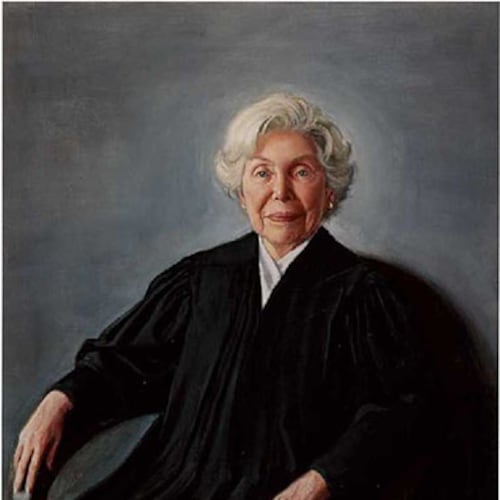Lawyers for an inmate scheduled to be executed Wednesday are asking the state parole board to grant him clemency, saying Travis Hittson is extremely remorseful for what he did, has had an exemplary prison record and was manipulated to commit the murder by a co-defendant who may one day be paroled.
Credit: Bill Rankin
Credit: Bill Rankin
After Hittson and fellow sailor Edward Vollmer killed a third sailor in 1992, they cut up the body and and buried the remains in different places. Hittson's clemency petition says Vollmer exercised "unnatural dominance and control" over him and manipulated him into killing Conway Utterbeck.
Hittson's petition was "declassified" Friday by the State Board of Pardons and Paroles, which is meeting today to consider Hittson's plea.
“The community of men who served alongside both Mr. Hittson and Conway Utterbeck in the Navy believe that Travis Hittson is deserving of mercy, as do others, including jurors who were charged with determining Mr. Hittson’s punishment,” the filing said.
“Neither Mr. Hittson nor those who wish to speak on his behalf have shut their eyes to his guilt,” it said. “Mr. Hittson committed an appalling act; an act which took the life of Conway Utterbeck and harmed his family in profound and irreparable ways. Those who know Mr. Hittson, however – even law enforcement personnel who knew him only long enough to hear him confess and assist in the investigation of this crime – are united in their conviction that he is remorseful and would never have committed this terrible crime absent the deliberate manipulation of his codefendant and naval superior, Edward Vollmer.”
The petition was prepared by Art Cody, a retired Navy captain who is legal director of the Veterans Defense Program, and Kirsten Andrea Salchow of the Georgia Resource Center.
In the spring of 1992, Vollmer, Hittson and Utterbeck were sailors aboad the USS Forrestal, an aircraft carrier based in Pensacola. They were all assigned to the engineering department, and Vollmer was Hittson's lead petty officer.
On April 3, 1992, Vollmer invited Hittson and Utterbeck to come with him to his parents'
Credit: Bill Rankin
Credit: Bill Rankin
home in Warner Robins for the weekend. Vollmer's parents were out of town.
That Saturday evening, Vollmer and Hittson went out drinking, leaving Utterbeck at the house. On the drive back, according to court records, Vollmer told Hittson that Utterbeck was plotting to kill them and for that reason they needed to kill him first. Vollmer retrieved a handgun from his car and handed Hittson a baseball bat and told him to go inside and hit Utterbeck and incapacitate him.
When they arrived, Utterbeck was asleep on a recliner and Hittson struck him repeatedly, court records say. The two men then dragged Utterbeck into the kitchen, where Vollmer gave Hittson the handgun and stepped on Utterbeck's hand to keep him from struggling. Hittson then shot Utterbeck in the forehead, killing him.
Afterward, at Vollmer's direction, Hittson began sawing off Utterbeck's hands and head, apparently so police could not identify the body, court records say. But Hittson became ill and had to stop, and Vollmer finished the job.
They disposed of Utterbeck's torso nearby and put his other body parts in shallow graves after they returned to Pensacola. A logging crew found Utterbeck's torso in June 1992, leading authorities to Hittson. He ultimately confessed and showed investigators where the other body parts and evidence were located.
The clemency petition portrays Hittson as a kind, awkward and naïve young man who was always trying to please others. He also had become ravaged by a drinking problem.
The petition cites Hittson’s former Navy colleagues who said that once Vollmer became Hittson’s superior, he began to manipulate him. Vollmer, who was abusive and controlling, ultimately got Hittson to help him carry out a murder, the petition said.
“Mr. Hittson’s lower rank, gullibility, alcoholism and desperation for approval made him peculiarly vulnerable to Edward Vollmer who, by all accounts, exercised an unnatural dominance and control over Mr. Hittson,” the filing said.
A state prosecutor, who was not identified, has submitted a letter to the parole board and provided his thoughts on the case, the filing said. The prosecutor wrote that even though Vollmer had the “lesser sentence, it is evident from the information received in the investigation that Vollmer was the instigator of the murder, that he convinced Hittson to do it, that the manner of disposing the body was Vollmer’s idea and that Vollmer is, in a word, EVIL!”
Vollmer was allowed to plead guilty in exchange for a life sentence with the possibility of parole, the filing said. “This disparity in punishment is troubling and profoundly unfair, given the overwhelming agreement … that Mr. Hittson would never have committed an act like this if he had not met Edward Vollmer.”
About the Author
The Latest
Featured




